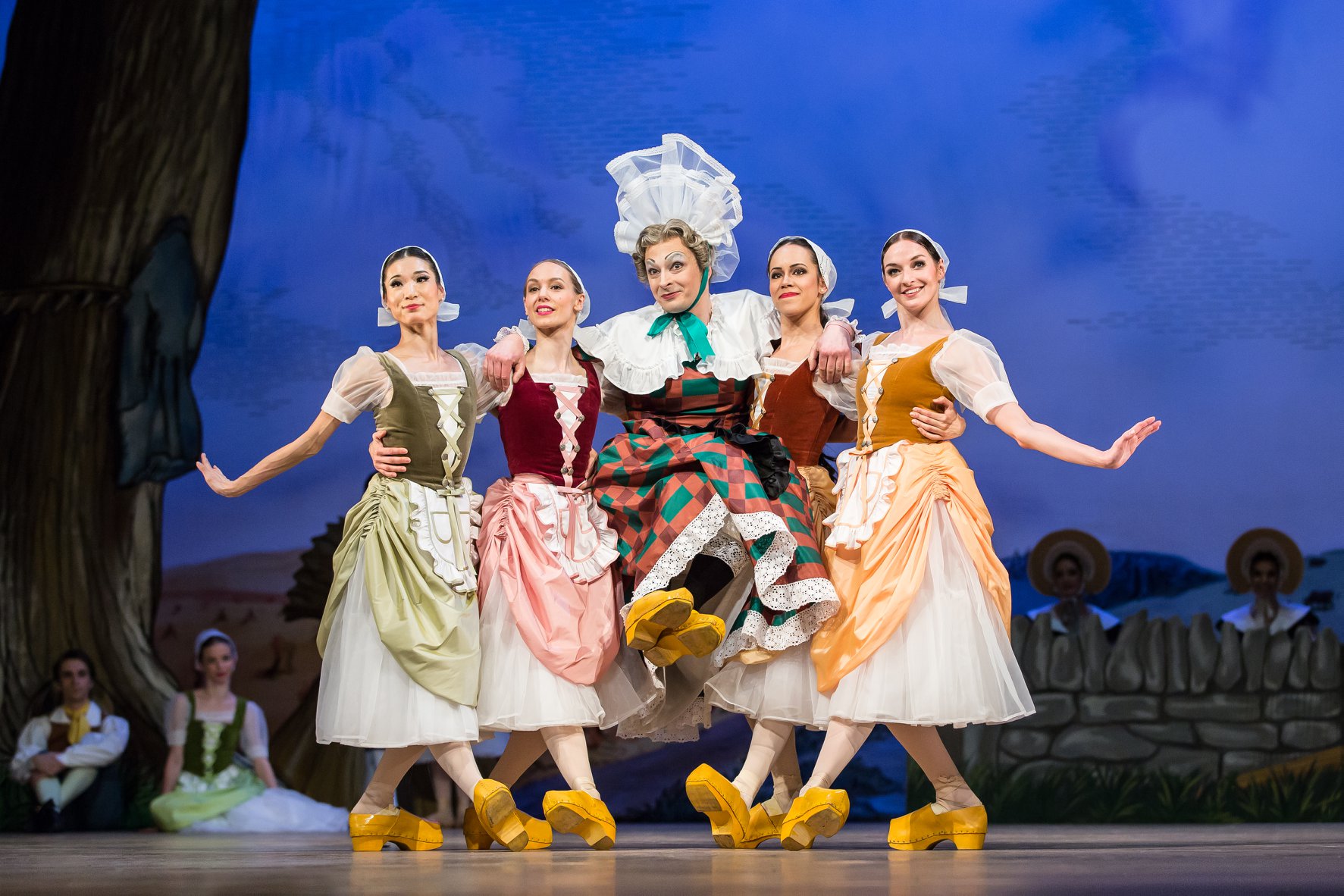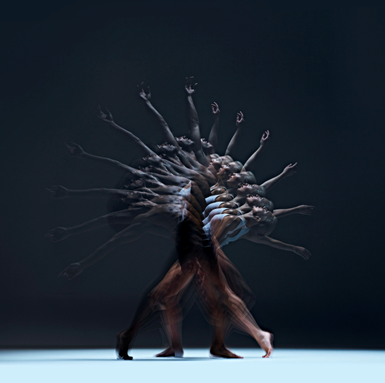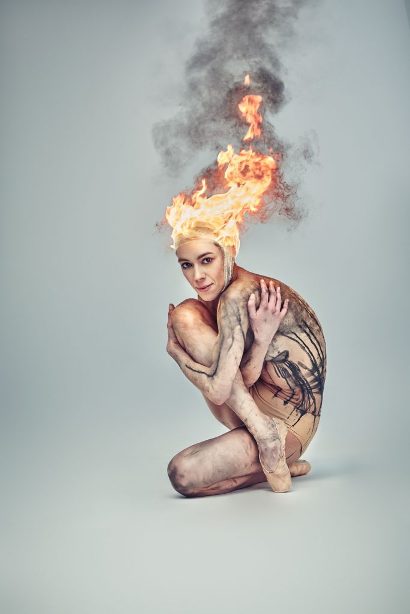We met just a few days before the 2017/2018 season was over. The artistic director of the National Theatre ballet company came in a big hurry right from the ballet studio where the soloists were preparing for the last La fille mal gardée of the season. “I had to give some more corrections, because some things happened the last performance and I didn’t have time in the studio to really go through them,” Filip started explaining while walking across his office still full of energy as if he wanted to start dancing. His enthusiasm was visible and I started to ask myself: how many different roles he actually plays in his company? Moreover, how is he able to manage?
Is it common that you, as an artistic director, also attend or lead rehearsals? Or is it just the case with La fille which is a piece you actually danced in? I do believe that ballet director should not be just a figure who is sitting in the office and managing the company, but the dancers should have personal treat from him. This personal treat is not just because of La fille mal gardée, I also teach classes, because I believe they need to know about my vision, what I do want from them, and I need to do it personally. Only one year passed, only one season and I think dancers need to directly feel and understand what I am looking for. When rehearsing The Rite of Spring or the Balanchine premiere, all those things I brought in the repertory, I was there all the time in the studio with them.
Do you enjoy teaching dancers? I love teaching. I planned to teach at least one or two classes a week, but you know, it´s a dream. But when I manage I am happy, because the dancers get to know me and they also need to feel that I care for them.
How many things have changed in the company since you came? The organisation has changed, the whole season is better planned beforehand. I discussed every single performance and every single cast with the ballet masters in advance, so basically now we already know what will happen in the following half year. I think that it´s the organisation that was needed, because they did not even have weekly schedule, they had only been working from day to day. When they performed for example La Bayadère this season, it was a different Bayadère. I had also Javier (Torres) stepping in, having the choreographer work with them again was very important.
One of the biggest problems, I guess, was that they had to switch between totally different techniques too often, some of them even said themselves that they knew they were not performing their best. How do you deal with this issue? This was the discussion before we scheduled the whole season. We had to figure out what is possible to connect. When going from contemporary to classical, sometimes it is possible, for example we had the chance to see it now – to see Tremble one night before La fille mal gardée. Both of the performances were fantastic. I am aware that sometimes it is not possible to rehearse certain choreographies at the same time. But today, in a 21st century company, you are expected to be able to do all the repertory.
Are you satisfied with your first season? I am extremely satisfied. I never thought that I would feel like this at the end of the first season. Because the company delivered extraordinary work. With 13 titles and more than 120 performances with almost 100 000 visitors and with the selling over 95 % I think they delivered great work, I would even say effortlessly. They switch from edgy contemporary work to really classical titles with such an elan I feel it when I see them perform. It´s true, it´s not that they are artificial and just putting smile on their faces. I think they enjoy it. 
And how about your dramaturgic vision for the company? You seem to be classical-oriented? I think I will always keep classical ballets in the repertory because for me classical repertory is our base. Without having that base, we cannot raise our quality of performing. And I don’t believe that perfect or very good contemporary dancers can be only good at contemporary styles. On the contrary, I think they can only be contemporary dancers if they also can do classical repertory. Because the progress is involved in both directions. If you are good at classic, you can perform William Forsythe, because that´s where the base is. So the repertory will go in two directions. This season I brought Balanchine, because I wanted to push the girls to move faster. And I also really wanted to bring La fille mal gardeé. It´s like a first step towards a real classical style. Than from there on, we can move into next seasons.
Which classical ballet will be the highlight of the next season? We will have Swan Lake, though it´s a challenge to bring it to a place where you already had 13 different productions. It may be criticised but I am not worried about it. We will introduce the version of marvellous choreographer John Cranko. It has never been permitted to be staged outside of Stuttgart so far. The next big company to stage it will be Canadian National Ballet. We feel overwhelmed that we have this chance.
What is characteristic for Cranko’s version? This version is very simple, simple and beautiful at the same time. That´s what Cranko is, he´s very pure, you can see his signature in the dramaturgy, which is so readable, you don´t need to explain the spectator anything. For example in the first act, where girls are dancing polka, they are not on pointe. When they really need to be on pointe, to really look classical, they do, that´s in the 2nd and 4thact, but what else happens is just telling a story. I think it is a marvellous example of storytelling.
How did you manage to bring such an expensive production? I think that the company deserves it and that´s it. You have to prioritise goals. What I have seen so far, they are such good dancers with certain qualities I want them to explore more. Certain ballets have never been seen here yet. I didn´t understand why you didn´t have Sir Ashton’s work here. From my point of view, it´s something you need to have, it´s a treasury of the tradition. But not only I would push the classical repertory, I will always keep one premiere being classical, the rest will be developing in different directions for sure.
You are also bringing Jiří Kylán, who is a “modern classic”. Jiří Kylián is really a mentor of choreographers of international names, a star choreographer, who created more that hundred different modern choreographies, he´s such an artist! It´s pity that he does not create any more. I personally have experienced dancing in his ballets in the past. It´s something that will push you, because he is so sensitive... And the speciality of Jiří Kylián, I don’t know if you noticed it, is that in all his ballets you have always a relationship between female and male. Even if there is no storyline or it is abstract, it already is a story, when you have a relationship between woman and man on the stage. It is beautiful. Strange thing is that John Neumeier, Jiří Kylián, William Forsythe, they all spent certain time during their life in Stuttgart. It is amazing, how John Cranko helped the others, how generous he was to mentor those young artists to become choreographers. I think it means something.
How about young Czech dancers, is someone joining the company? We have one member coming next season. But unfortunately, I couldn´t find more than one girl in the conservatory. In general, ten new members are joining and about six leaving, it will all be announced publicly at the beginning of the new season. 
People sometime ask and they sure will keep asking about it: why can´t be more young Czech dancers employed in the company?
Well, there is no extra treatment for anybody, if there is an audition, everyone is welcome and of course, students of the school are coming too. The thing is following: when I choose dancers for the future seasons, I need to be aware that I already have a bunch of people who are in the company so I am only collecting in order to match the quality. Their background is a mixture of French school, Italian school or another style, I don´t look at the passport. I feel myself multicultural: having a Polish passport and living in Germany for more than twenty years and looking in European standard, that´s what it is. In Stuttgart we had only two German dancers, the company was all international. I think being an artist is who you are. It does not matter where you come from. I would appreciate it, of course, if more Czech dancers could join. You have many fabulous dancers like Daria Klimentová, Jiří and Otto Bubeníček, Jiří Jelínek, Barbora Kohoutková, many dancers that made the career. But consider this: they´ve made their career abroad.




